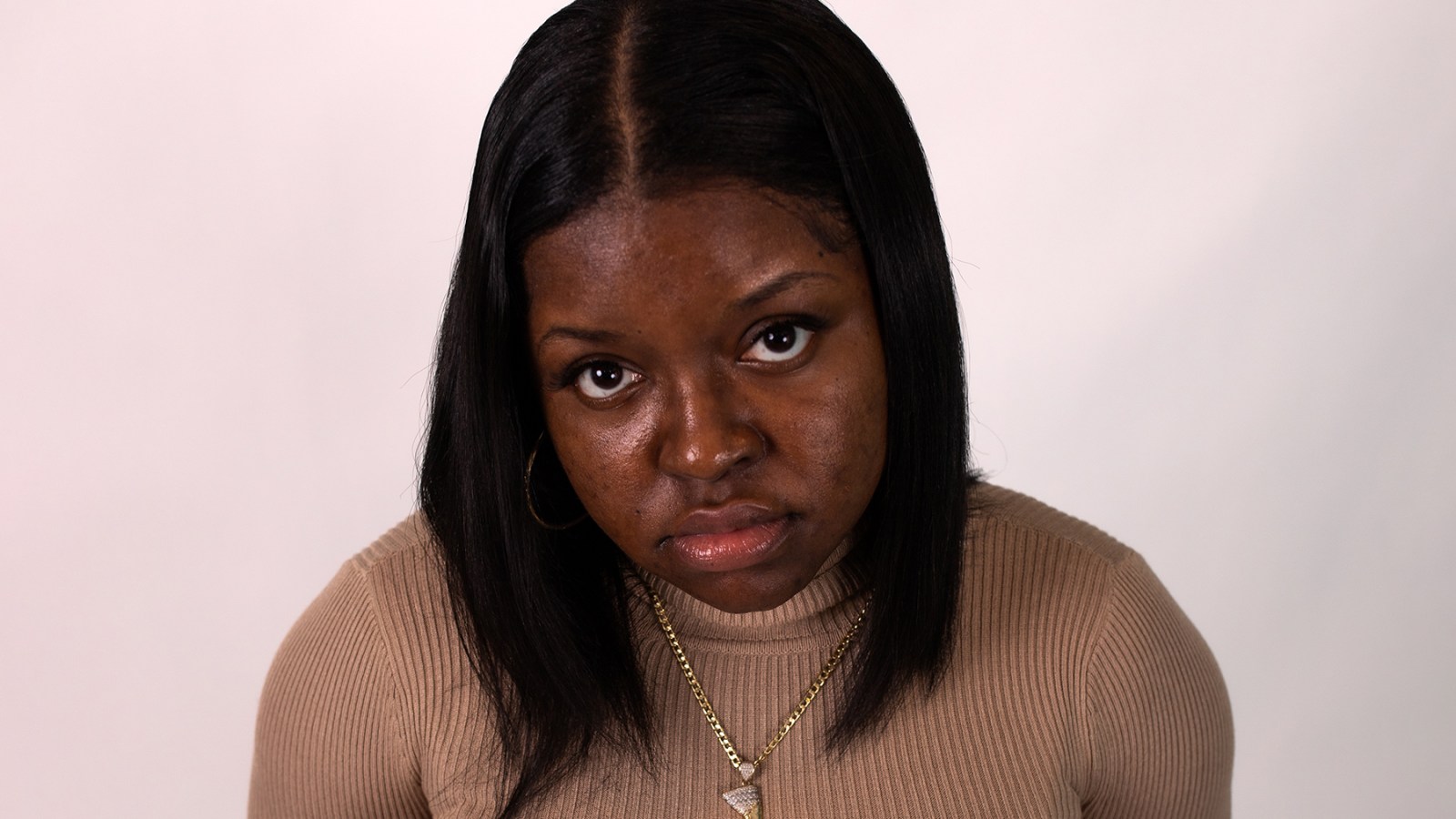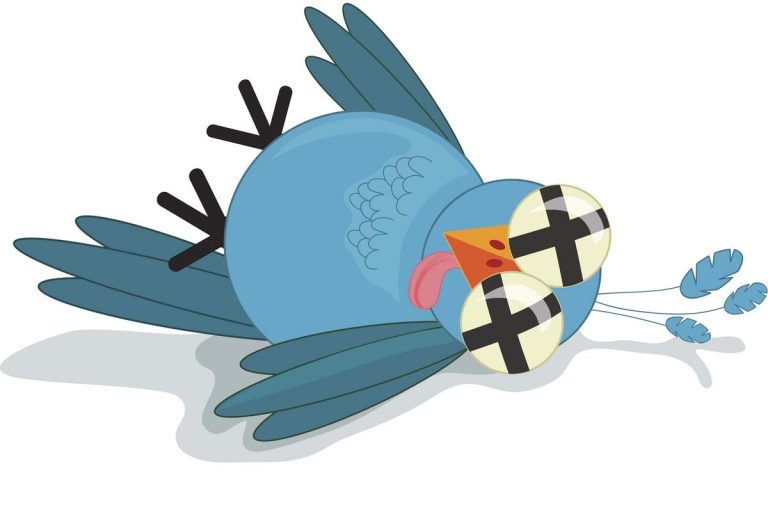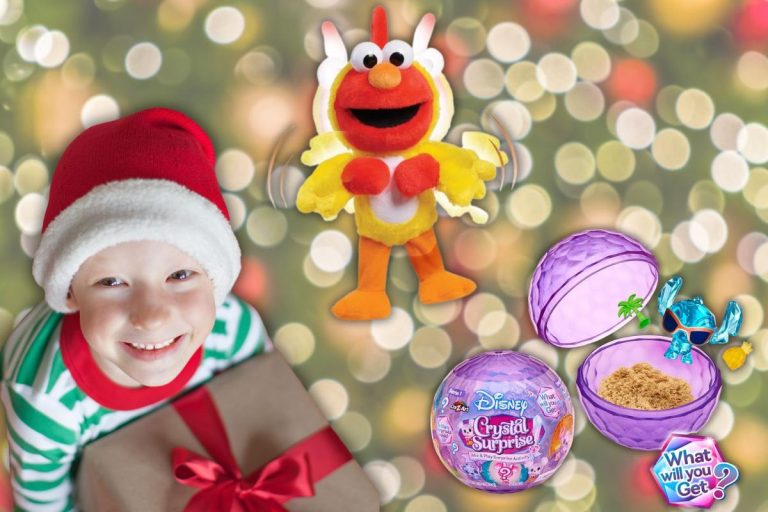As Buffalo rapper-producer Ché Noir gets settled in a conference room in the Rolling Stone offices, she gets word that the radio host she’ll be speaking with later on also wants her to freestyle. In the age of social media, freestyling is a tenuous ask for rappers, but Ché’s unfazed. She’s got bars for days — and she seems unflappable. In conversation, Ché carries herself with the quiet, self-assuredness of someone who built a career by doing things their own way. She speaks as calmly and thoughtfully as she does throughout her growing catalog of existential excavation.
Late last month, Noir dropped The Lotus Child, her 13th project and one that injects live instrumentation into her sound. Songs like “Black Girl” (with Rapsody) and “Angel” showcase her knack for skillfully summating her life trials into relatable morsels. And it’s all presented with an impressive technical acumen. The 30-year-old artist and founder of the record label Poetic Movement has worked with a range of producers, such as Apollo Brown and .38 Spesh. She’s been producing since high school and has laced herself on standout projects like the multi-layered Food For Thought. Now, seven years into her career, she’s released a sonically warm, introspective project where she grapples with grief after the loss of her brother and uncle in 2022. Those losses sank her into a morass of regret and substance use, which spurred a break from the industry to recollect. Those qualms take center stage on standout “Angel,” where she raps to her brother over a vocal sample.
During her absence from the industry, she met and fell in love with her now-husband, a union that she says has given her a new perspective on life. In 2022, the two opened a barber shop in Buffalo’s Elmwood Village. She reflects on their relationship with “Wis Love,” a song she says it took her more than a year to refine. The talented MC takes her lyricism seriously, as it’s made her an if-you-know-you-know favorite in the East Coast rap landscape. While so-called hip-hop heads soapbox about what rappers, especially women rappers, aren’t doing, Ché has been gradually plugging along on a catalog that can compete with just about anyone who debuted over the past decade. Ché says there have been times when she wondered if she’d be able to break through with her sound, but it all came together favorably. “I’ve learned to accept whatever lane that my music drives me to,” she says, “I’m so appreciative of the fan base that I’ve been able to build over the past five years.” Ché talked to Rolling Stone about The Lotus Child, overcoming turmoil, and her brief time in the Atlanta rap scene.
How did the album trailer come together?
It was so random. It was a weird couple days with the weather in Buffalo. On the days that we was trying to shoot and put things together, it kept raining. My cameraman was at some training class or something, and I hit him up randomly because [there] just happened to be nice weather. He was like, “Well, there’s a field out here next to where I’m taking my class at.” I pulled up, and we shot some scenes. And as far as Monie Love’s vocals, I hit her up late last year. I had an idea of getting different women to narrate the trailer for my album, and once I was putting all the pieces together, I had put out the Monie Love on there I was like, “You know what? This sound good, how it is. We’re just going to stick with this. We’re going to get some footage, and we’re going to tie it together like that.”
Have there been any particular co-signs that were really special for you?
Erick Sermon reaching out to me was dope. Ghostface, Raekwon. There was a few different, and those felt good. I think the first one that shocked me was Black Thought because this was back in 2020 when I was talking to Apollo about getting him on “Hustle Don’t Give.” At the time, I was still learning how difficult it is to get features and all that. He reached out to me before he rapped on the song. He was like, “Yo, I’m ‘bout to hop on your song, you did your thing.” I was like, “Oh, wow. That was dope.” This was during the pandemic. We’re all locked in the house, and I just so happened to go through my messages, and I’m seeing it.
How long have you had or had the idea to do a project with more live instrumentation?
This has been a vision of mine for a long time because I started as a producer with music. I wasn’t even rapping at the time. To [bring in] musicians and have them play instruments and tie my production into that has been a vision of mine since around 2014 when I said, “Okay, I’m going to be a producer and I’m sending people these.”
When did you start working on the project?
I want to say 2020 because the “Shadow Puppet” beat, I did that during the pandemic. It’s just, there was so many different versions of it. But 2021, I started recording the vocals for it.
How often would you have these particular sessions with instrumentalists in between the other work that you were crafting?
It was mainly after I was done recording. Once I put my vocals and got features and all of that, I would sit on what I had and was like, “Okay. I think this will sound dope on here.” One of the musicians is a woman. She plays the guitar on “WisLove” at the end. I met her in DC. I had did a show at Howard Theatre, and I met her there. I seen her on stage performing and I was like, “Oh, I got to get her information,” and I ended up working with her. And then some of it came through my people, G. Huff. He linked me and made the Brady Watt connection.
What do you think is the story being told on this project?
A kid from East Side of Buffalo coming up and beating the odds and finding my way in this industry the way I did. I didn’t know at one point how I’ll ever get to the point where I can completely feed myself off of music. I have been doing it for so long, and Upstate for a long time wasn’t a place where you go and get discovered. I was doing showcases for years. I ain’t never seen an A&R, nobody, and none of the shows like label, nothing. How we used to do it was you got to go to Atlanta or you got to go out to New York City. I didn’t know. It was hard trying to navigate and figure out how to make money off music without signing a deal.
For me, when I figured that out, I felt like I beat the odds in a lot of ways. That’s what I’m trying to tell through this album, the things I overcame, losing people, falling out with close friends, growing as a woman. Sometimes when you take certain steps in your personal life to better yourself, you lose people on that journey. It may not be physically, but you may lose relationships because you’re taking a different step in your life.
Is there a particular pipeline of upstate people in Atlanta or did you just go there because Atlanta is the Black music Mecca?
A lot of upstate people moved to Atlanta at one point, and just stayed there. I have a lot of immediate family there. There was a point when I was trying to get things rockin’ on my music but Atlanta was in a weird period where they hadn’t fully embraced this upstate underground sound. I was doing showcases when everybody was turning up to “Panda,” you know?
I’m doing this and they’re doing that, and it’s like, “What the hell is she doing?” I’m getting booed on stage and it’s just like-
Oh, shit.
Yeah. That was a whole thing.
How did you handle that?
I was shocked. I thought I was up there spitting my best shit, and I got booed. It was a humbling period. I remember coming back to Buffalo and I was like, “I don’t think I want to do this music stuff anymore,” or at least take a backseat to it. I was at that point where I had literally tried everything and nothing was working. So I went back home and I was looking for some different jobs within my degree field. One day, it was 2017, the day before New Year’s or something like that, Westside Gunn had shouted me out on Facebook.
He had said this long paragraph. And it was like, man, people was hitting me up like, “Yo, your music’s fire.” And I was like, “Okay, I’m about to get back in the studio.” And then, I ended up going out to Chicago, recorded the EP out there. One of the songs on there, that’s how I ended up meeting Spesh, I sent him one of the songs that I recorded when I was in Chicago. But yeah, Atlanta at that point in time was very rough to try to walk there, trying to do your thing.
One of the lines on the album is, “Attention is a drug and it’s painful when it’s wearing off.” How do you reckon with that, and how did it get less painful for you?
A lot of that is just in reference of [experiencing] a point in your career they say, your prime, that moment where all the attention is on you. Everything at that moment is about what this particular person is going to do next. I took time off because I had personal things going on. So for me, I was trying to juggle with taking care of my family, my personal things, and still keeping a sense of relevancy in this rap game.
There’s a new artist coming out every month it seems like, and just sustaining relevancy in it. But that’s where that line arrived from for me. I had a point where I was like, “Man, do these people even want to still hear me? I don’t know who listening. Is it worth to keep going as hard as I have been going?” I don’t think like that no more, because I’ve learned throughout these years that having a core fan base and people who support me is more important than the other things that I thought made you successful.
Can you take me into the period that you decided to take a break from music? What compelled that and what did you do during that period?
At the top of [2021] I started going through a bunch of personal stuff, and [that following year] my brother was killed. I lost my uncle in the same month. I had stuff I had to take care of being rocked by those two deaths. I ended up dropping a little bit after that, but my head wasn’t in it because I still was going through some things. During that time, I just healed.
I started going to therapy for the first time in 2021. I learned a lot about myself. There was a lot of reasons why I started speaking about it in my music. Growing up, going to therapy wasn’t ever an option that was on the table, and I was dealing with certain things. But I started realizing that okay, I’ll go through it. I deal with anxiety, I have social anxiety, I have a lot of different components that’s contributing to my breakdown. And so I just spent this time healing and enjoying life.
What are some of those things that brought you enjoyment?
I fell in love.
That’ll do it.
Yeah. [Laughs] I didn’t think before that, that it could change you so much when you meet that person. But for me it did. I feel like I grew as a woman. Especially now being married. I just spent that time enjoying my life, things that I never did. I was always about work, work, work. Even before I got into music, I was working about two or three different jobs. I was always hustling. And for the first time, I just sat and I said, “Okay, I’ll just enjoy being alive.”
In what ways do you feel like you’ve grown through marriage and your relationship?
It taught me patience. I wouldn’t say I was an angry woman, but I was very closed off from things. It opened me up. It softened me up in a lot of ways. My mother, she’s a tough cookie. So it softened me up in a lot of ways. I was very hard and rugged at a point.
How is you and your husband’s barbershop going?
Really good. It’s in a really busy area in Buffalo, they call it the Elmwood Village. We just built up clientele just from word of mouth. We get a lot of walk-ins and different clientele, but it’s still building over the years.
What do you think you’ve learned as a business owner?
Owning a brick-and-mortar is a little different. It’s a little more hands-on, more tedious in a way. I think for me, just staying on top of the books, [and] establishing a consistent environment of professionalism. We have been fighting with the city because there’s been plumbing issues. Sewer issues that we was getting backed up with. And they finally came and fixed all of that stuff after two years of us going downtown and fighting for it.
Can you take me into the process of writing “WisLove?”
I started writing the song when me and my husband started first dating. I finally recorded it a year later. Our relationship inspired that. We had a lot of moments in the beginning because we were two adults coming into the relationship, still learning a lot about ourselves individually. You still don’t fully know yourself and you’re trying to create something together. That’s a journey.
There was a specific line, “You ain’t have it when we met, but I prefer to see you getting it.” Can you break down that line for me?
When me and my husband met — this was before marriage was even a conversation. — we had our own motion and things going. But where we at now, I noticed one day, this might’ve been maybe a few weeks before we got married, everything that we have now is the most we’ve ever had in our lives, and we got all of that together. Like I said, we had things going on individually when we met, but this is the most we’ve had now. I’m like, we got all of this together because we came together and grinded that out together.
How often are you writing songs in one sitting and then recording versus going back to it?
I used to do it a lot. Now because of so many other responsibilities I have now on my day to day, I have a setup at my house. So a lot of times if a beat resonates with me, I might just take it with me, ride around with it for a couple days, just feel it out. It’s been a minute since I’ve written and recorded all in one sitting. But it’s fun. It’s a task. But it’s something I used to challenge myself with, a lot in the beginning like when I used to go around Spesh a lot, everything had to be written in the studio. He’ll put a beat on. Even if I didn’t even think I was coming to rap, I thought I was just coming and chill or whatever, [he’s like] “Here. Write to this.”
That’s funny. Do you feel like you’ll pursue live instrumentation in most of your future projects?
I love the sound of it. I’m a fan of it. Like I said, I was a producer first, so I’m a fan of so many different sounds. I’m a fan of it, so I’m going to be on that. As I grow throughout my career, [sampling] is something that I’m going to stay away from because it is a headache. You see a lot of sample-based producers that don’t even sample anymore. Sometimes, it won’t be worth the headache.




Leave a Comment